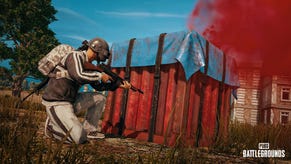The PSPgo "was a complete flop"
Lessons will make NGP "a better system".
It's official: the PSPgo, Sony's UMD-less portable handheld, is no more.
Only a year-and-a-half after launch, Sony has ceased production of the device to "concentrate on NGP", due out at the end of the year.
But why did it flop?
"It was a flop because it wasn't sufficiently differentiated from the PSP-3000 to justify the much higher price," Wedbush Securities analyst Michael Pachter told Eurogamer.
"There's not a lot to say about PSPgo. The feature set was cool, but not cool enough. The download-only mechanism was not as attractive as they thought it would be. The form factor, while nice, wasn't worth an extra $80."
The PSPgo endured constant criticism from some quarters for its lack of a UMD drive and perceived high cost.
In September 2009 Holland's largest specialised retail outlet, Nedgame, decided not to sell the PSPgo. UK shops did not hold back, either.
It was this tumultuous relationship that, Nicholas Lovell of GAMESbrief believes, was the PSPgo's biggest problem.
"The death of the PSPgo highlights the problems faced by hardware manufacturers in their relationship with retail," he said. "Sony needs retailers to sell its hardware; it also knows that the future of software is downloadable. In a world of downloadable software, physical retailers are vastly less important, and this terrifies them.
"So Sony tried to launch a product that needed retail support to shift units, then cut them out of the value chain by selling games directly to the consumer. The retailers rebelled."
In June last year Sony announced a new PSPgo £225 deal whereby anyone buying the handheld would be given 10 free games.
It was seen as an effort to reverse the handheld's flagging fortunes. Obviously, it didn't work.
Perhaps unluckily for Sony, the launch of the PSPgo coincided with the meteoric rise of smartphones as popular portable gaming machines.
This, experts point out, also contributed to its downfall.
"The demise of PSPgo is not a surprise, in our view, as device sales were weak," explained Lazard Capital Markets' Colin Sebastian.
"We think price was one factor, but more important the download only distribution model for PSP games never resonated well with core gamers. Ironically, the launch of go also coincided with the steep ramp in smartphones, which are now the most popular gaming platforms 'on the go'."
While many will view the PSPgo as an expensive failure, Sony will take plenty of positives from the experience.
Indeed, some believe it was an experiment in digital distribution ahead of the NGP. All NGP games will be sold digitally as downloads - only some as physical products in shops.
"PSPgo was a failure, but iterative failure is a necessary step in progress toward innovation," offered M2 Research senior analyst Billy Pidgeon.
"PSPgo could have contributed very helpful feedback to Sony's dedicated handheld strategy as an open beta marketplace test in the evolution of game distribution from a physical media format to digital media format. NGP may well be a better system due to lessons Sony learned with PSPgo."
And for EEDAR's Jesse Divnich, when history casts judgement on the PSPgo, it may do so favourably.
"For the PSPgo, I do agree with most of the industry that is was a complete flop. The PSPgo was simply ahead of its time, which is a common problem for Sony. We will all look back 10 years from now and peg the PSPgo as being the first platform to go 100 per cent digital. While not successful, it did demonstrate the idea of a pure digital environment, which we all can agree will one day occur."




.png?width=291&height=164&fit=crop&quality=80&format=jpg&auto=webp)



